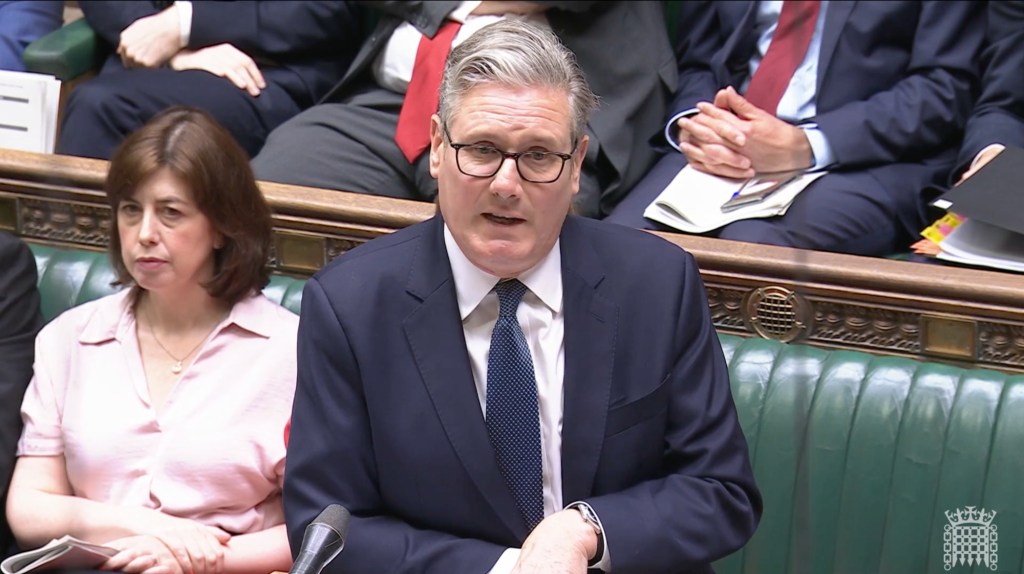This week, the BBC was accused of breaching its own editorial guidelines on more than 1,500 occasions and displaying a ‘deeply worrying pattern of bias’ against Israel in a report that drew its findings from an analysis of four months of BBC output.
Editorial bosses at Broadcasting House have questioned the methodology of the research, which was led by litigation lawyer and pro-Israel campaigner Trevor Asserson. But having worked inside the BBC newsroom throughout the conflict, I have drawn some unsettling conclusions of my own when it comes to the Gaza conflict.
To find out how we ended up here, we must return to the beginning. Four days after the October 7th outrages were committed, the BBC defended its decision not to label the Hamas gunmen who butchered men, women and children – including hundreds of young people at a music festival – as ‘terrorists’. No lesser a figure than World Affairs Editor, John Simpson, was deployed to write a piece explaining the rationale behind this editorial stance.
‘Terrorism is a loaded word, which people use about an outfit they disapprove of morally,’ he wrote. ‘It’s simply not the BBC’s job to tell people who to support and who to condemn – who are the good guys and who are the bad guys.’ He added that the BBC’s business was, ‘to present our audiences with the facts, and let them make up their own minds.’
Simpson’s sophistry had two major flaws. First, Hamas are the bad guys and not calling them terrorists risks implying these cut-throat religious extremists have a just cause. And second, it is risible to contend that the BBC strives to allow its audiences to make up their minds based solely on the facts.
As I have detailed here on previous occasions, the BBC has failed to provide impartial coverage in relation to two of the biggest issues of recent times: the response to Covid-19 and the poisonous trans rights extremism that has led children into harm’s way.
How can Simpson’s argument that it would be wrong for the BBC to call Hamas militants ‘terrorists’ – even though this is what they are – be taken seriously when the Corporation has inaccurately depicted sadistic male murderers and devious rapists as women?
Covid, trans extremism, antipathy to Israel – what ties all these editorial lapses together is a strain of liberal-progressive dogma, infused with identity politics and grievance, which has spread from social media into the BBC’s newsroom and boardroom.
Judging by the findings of the Asserson report, the problem is metastasising into coverage of foreign affairs.
In case any of my colleagues are reading this, let’s do a quick refresher on why the BBC should ease off on the criticism of Israel and focus on the real villains, Hamas: a group every bit as committed to the destruction of Jews as the Nazis were.
This is no exaggeration. Hamas has genuinely genocidal ambitions. It would happily wipe Israel off the face of the Earth given half a chance. And it makes no secret of the fact. During a sermon delivered in April last year, one Hamas official prayed for the ability to ‘get to the necks of the Jews’ who he described as ‘filthy, ugly animals like apes and pigs’. Less than a month after the October 7th massacre, another Hamas spokesman vowed to keep carrying out similar attacks ‘again and again’ until Israel was completely destroyed.
You don’t need to be a Middle East think tank wonk to recognise that Israel takes a robust and uncompromising approach to defence because anything less would risk a second Holocaust, with Hamas in the role of the SS, mercilessly clearing the land of Jews ‘from the river to the sea’.
Yet that murderous refrain – ‘from the river to the sea’ – has been heard chanted at scores of pro-Palestine demonstrations across the UK, often from the mouths of young people who can’t even name the Jordan River when asked, never mind point to it on a map. Indeed, the dangerous level of ignorance exposed by journalists who have quizzed the attendees of such rallies on the history and geography of the region is staggering to behold. The emptiness of the responses to basic questions about a war that is in the headlines on a daily basis is a damning indictment of the broader media, and the BBC’s failure to fulfil its stated mission to ‘inform and educate’.
Rather than elucidate the areas of confusion, however, the BBC has focused much of its coverage on the actions of the Israeli military forces. I don’t deny that, like many BBC journalists, I have been sickened by the carnage the Israeli response to October 7th has wrought on Gaza. Hamas sowed the wind but it is Gazan women and children who are reaping the IDF storm. Repeatedly viewing clips of footage of dead infants, their lifeless faces coated in masonry dust and blood, provokes a natural outrage. Personally I wish there had been a more measured, less predictably ferocious reaction from Tel Aviv. But we are where we are.
So what can the BBC do to restore trust? Well, if its editorial chiefs are confident they have no case to answer, why not respond positively to calls for an independent inquiry into the Corporation’s coverage of the conflict, with methodology and findings made public?
The first casualty of war is said to be the truth. In a social media age of rapidly spreading disinformation, the resonance of this has only grown deeper. As Israel continues its mission to crush Hamas and secure its borders, it is increasingly clear that what’s left of the BBC’s reputation for impartiality will be lucky to survive this conflict.







Comments